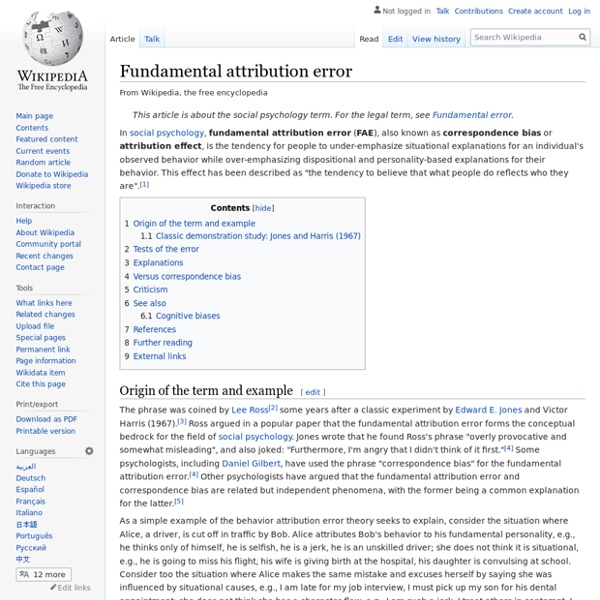Fundamental attribution error

Attribution to Cause of Behavior
Attribution Bias
To understand others
How to understand others
See things from multiple perspectives
Understanding Others
Coaching Discussion Tips
attribution error
We react based upon our attributions
What is attribution?
Avoid the Fundamental Attribution Error
Symptom vs. Root Cause of Performance Problems
Related:
Related:



